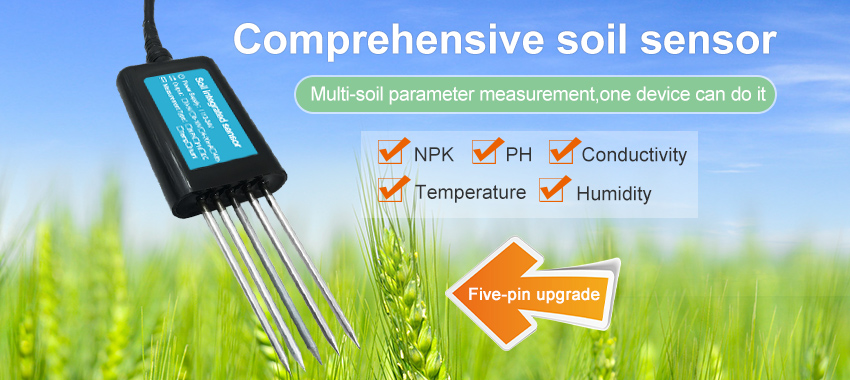Soil sensors

One of the most important IoT devices for agriculture is the soil sensor, which helps farmers manage their crops more efficiently by providing vital information about soil conditions. The agricultural industry has been rapidly transformed by the Internet of Things (IoT), a network of interconnected devices that can collect and transmit data in real-time.
Soil sensors are small electronic devices that are installed in the ground to measure various parameters related to soil health, such as temperature, moisture content, pH levels, and nutrient levels. By collecting this data, farmers can make informed decisions about irrigation, fertilization, and other aspects of crop management.
why soil sensors are a good helper for IoT agriculture
Increased Yield
Soil sensors can help farmers optimize water usage by providing accurate measurements of soil moisture levels. Overwatering or under-watering crops can lead to reduced yields or even crop failure. By ensuring that each plant receives the appropriate amount of water, farmers can increase their overall yield.
Reduced Costs
Because soil sensors provide real-time data about soil conditions, farmers can reduce their use of costly resources like water and fertilizer. This not only saves money but also reduces environmental impact by minimizing the use of chemicals and water.

Better Crop Quality
By monitoring soil nutrients, farmers can ensure that their crops have the necessary nutrients to grow strong and healthy. This can result in better crop quality, higher nutritional value, and improved taste.
Predictive Maintenance
Soil sensors can help farmers detect potential problems before they become serious issues. For example, sensors that monitor soil moisture levels can alert farmers when plants are at risk of drought stress, allowing them to take action before the crops are damaged.
Improved Efficiency
Soil sensors can be integrated with other IoT devices, such as drones and weather stations, to create a comprehensive system for monitoring and managing crops. This can improve efficiency by automating tasks like irrigation and fertilization, freeing up farmers to focus on other aspects of crop management.
In conclusion, soil sensors are a valuable tool for IoT agriculture. By providing accurate and real-time data about soil conditions, these devices can help farmers optimize their crop management practices, reduce costs, improve crop quality, and increase yields. As the agricultural industry continues to adopt IoT technologies, soil sensors will become an increasingly important part of modern farming practices.